
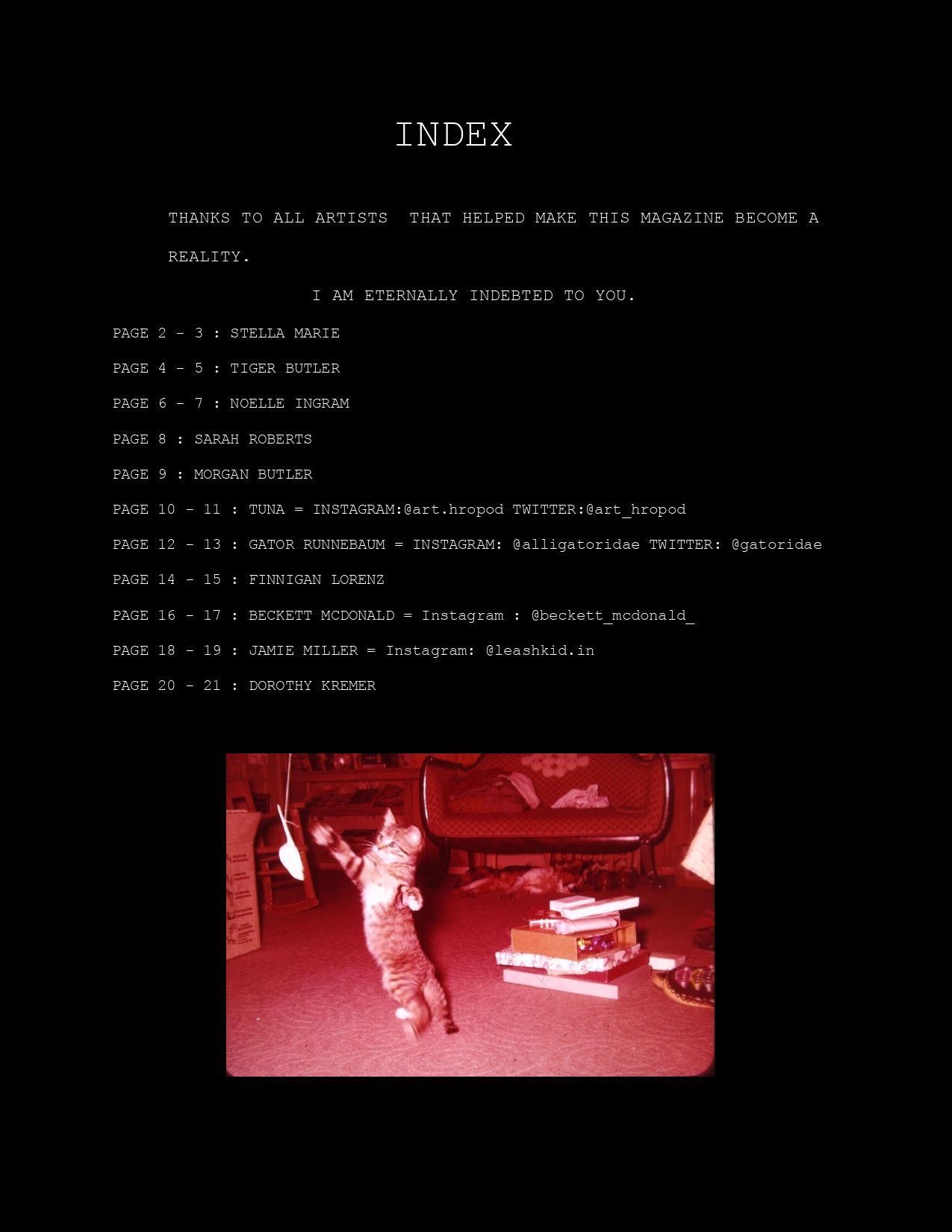
.jpg)

.jpg)
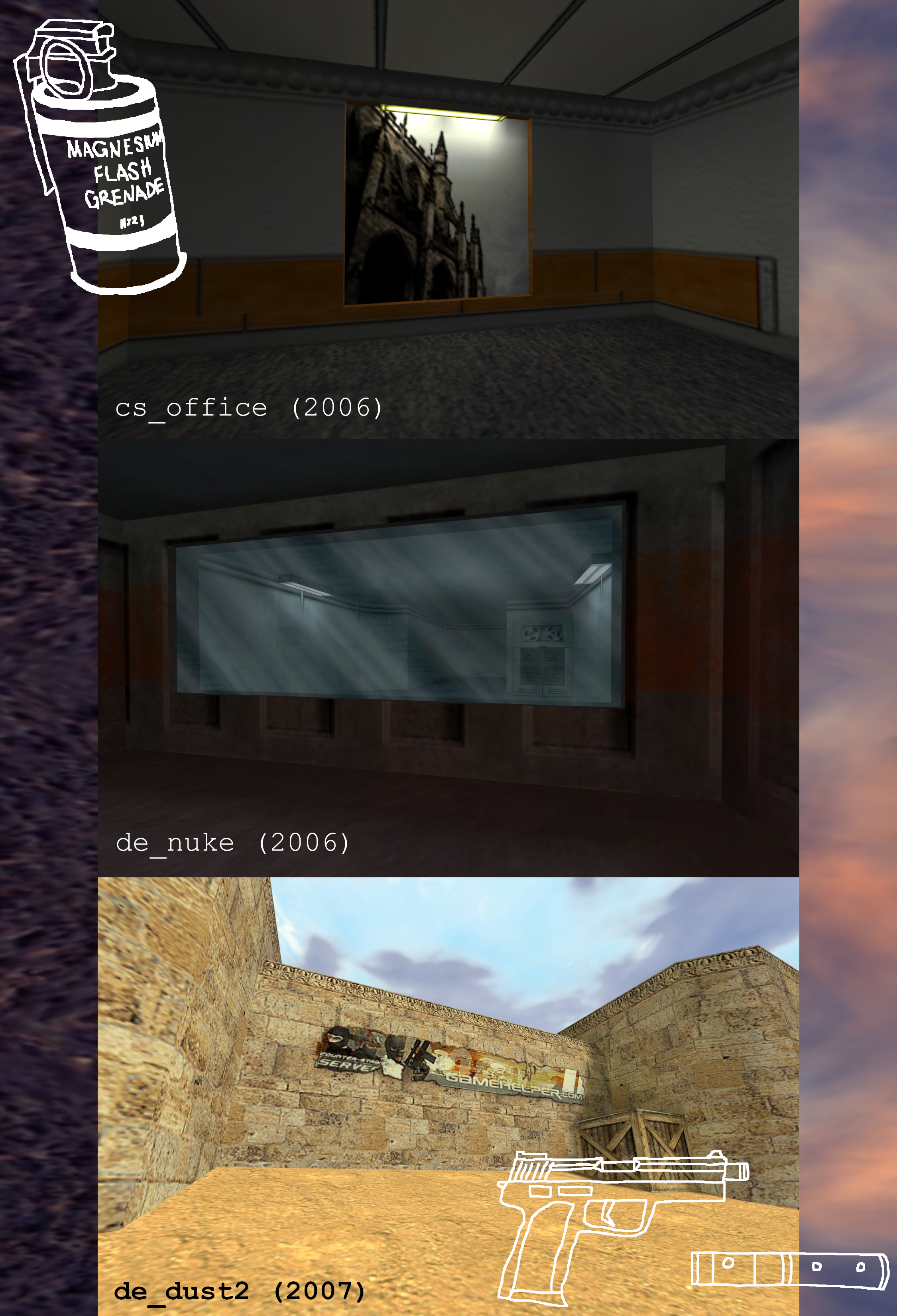
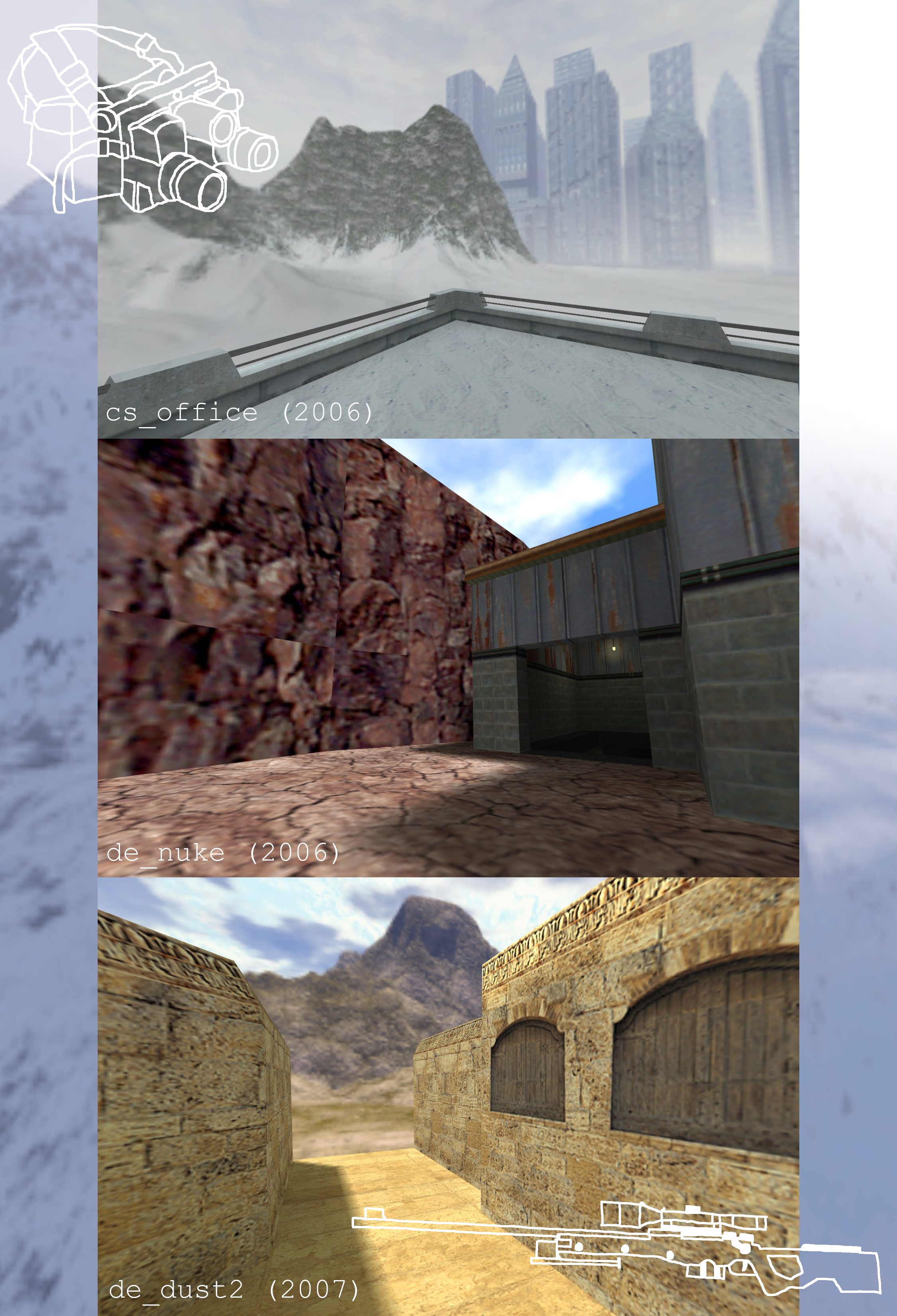
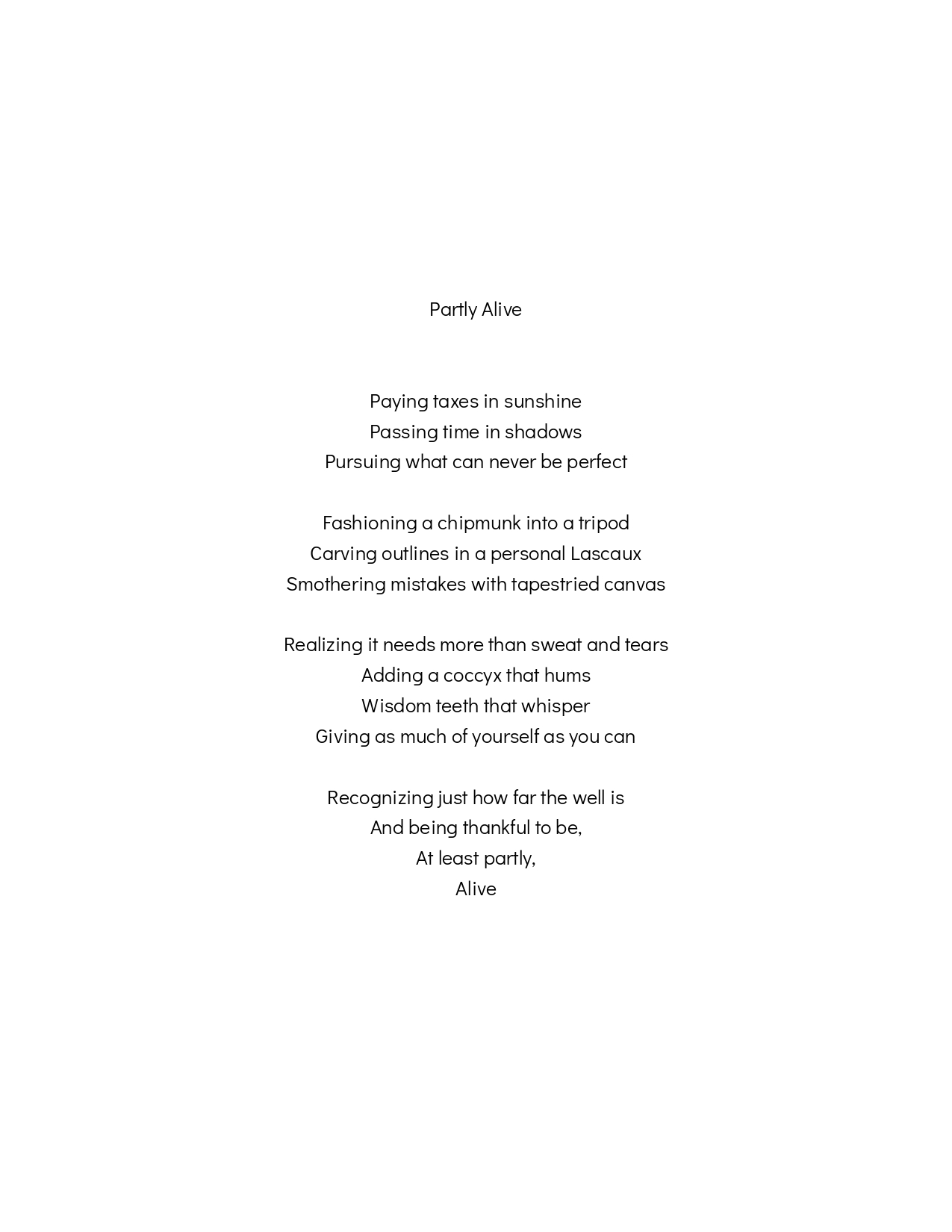
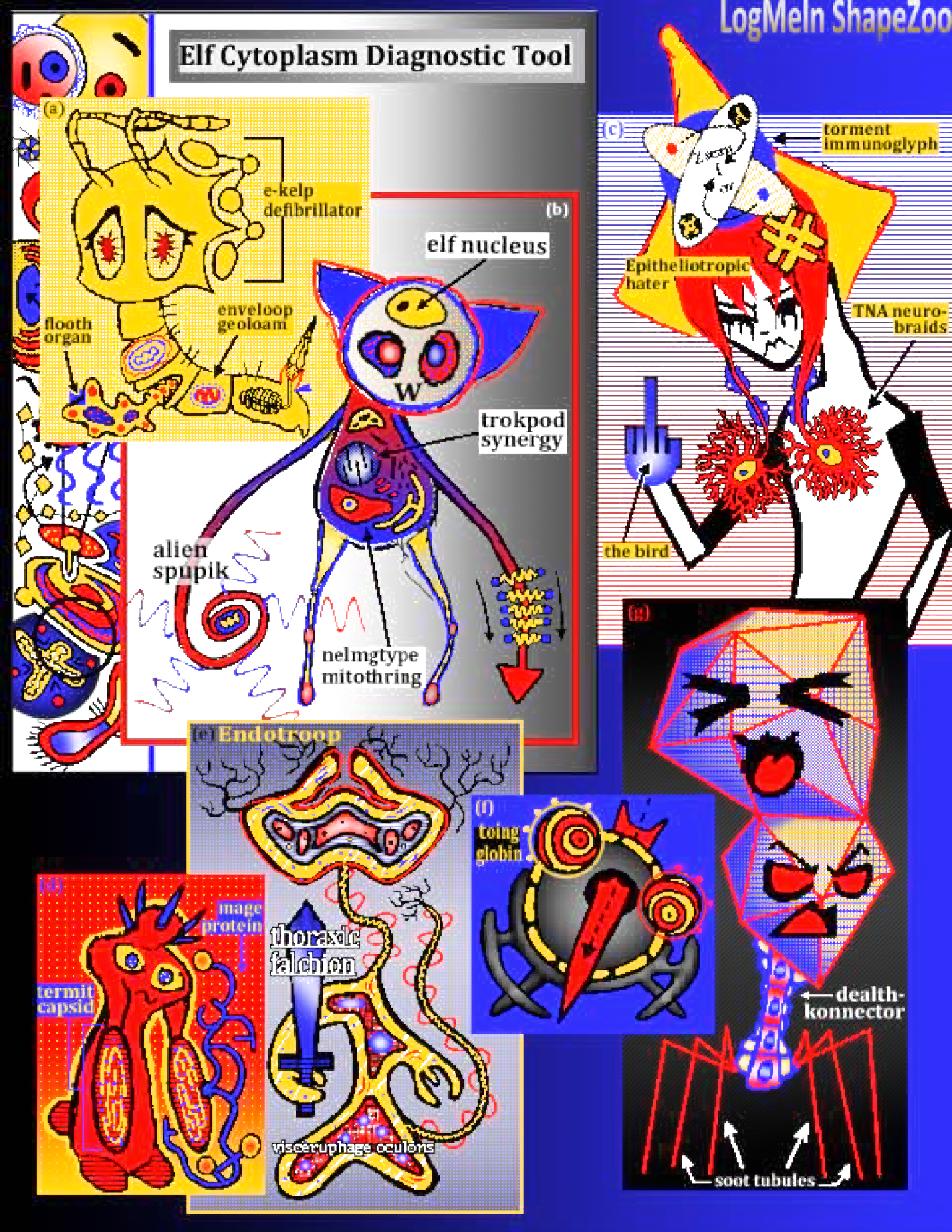
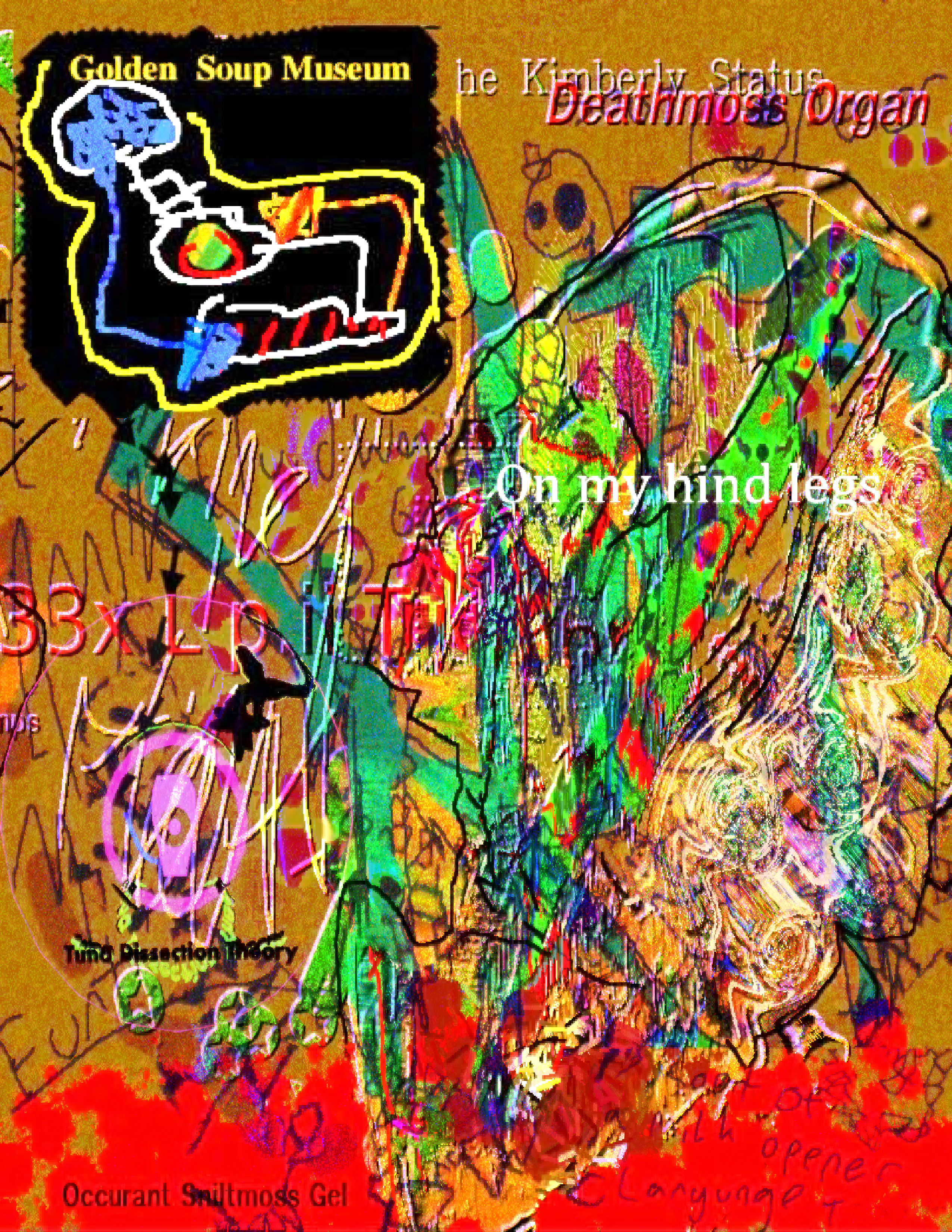
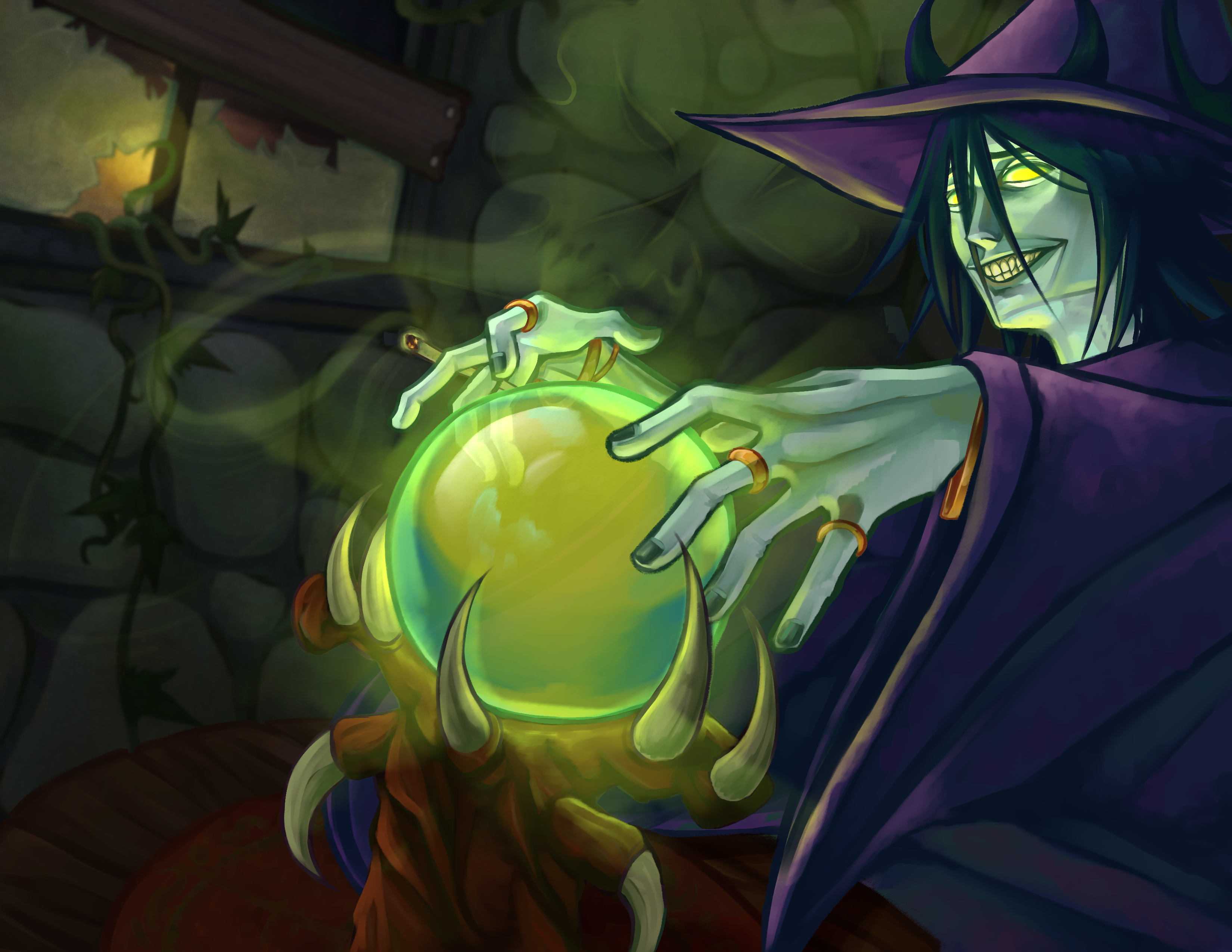
 (1) (1).png)
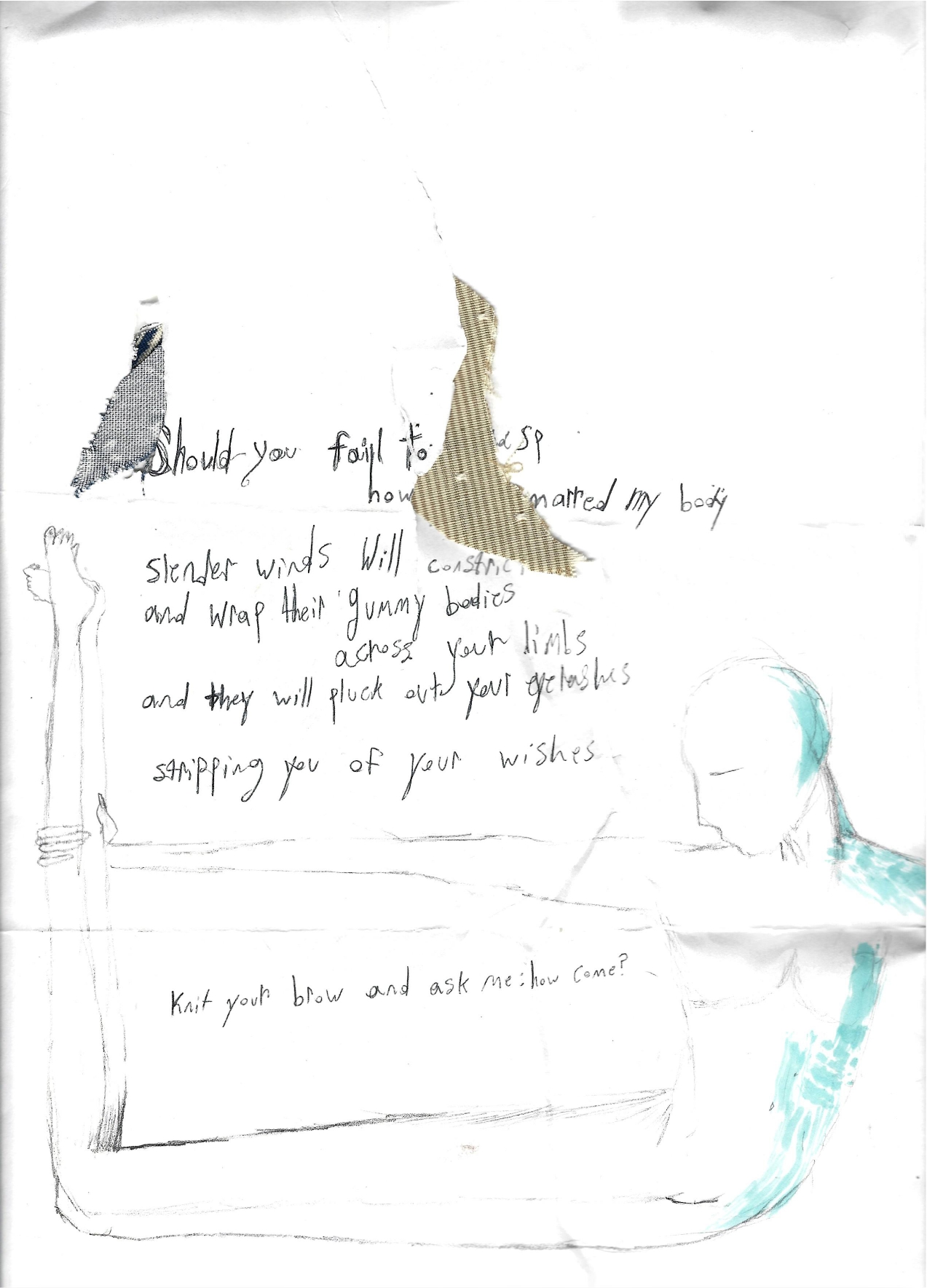
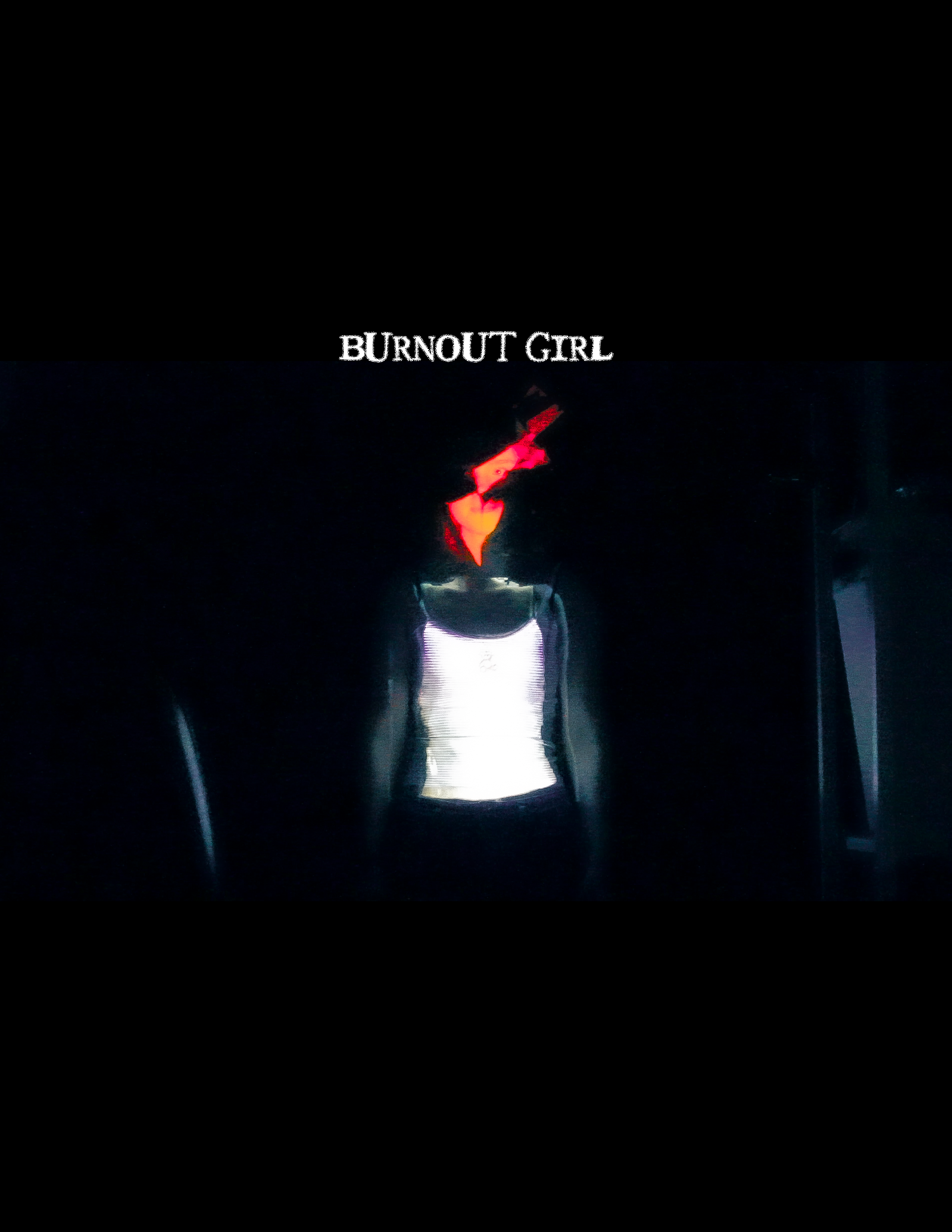
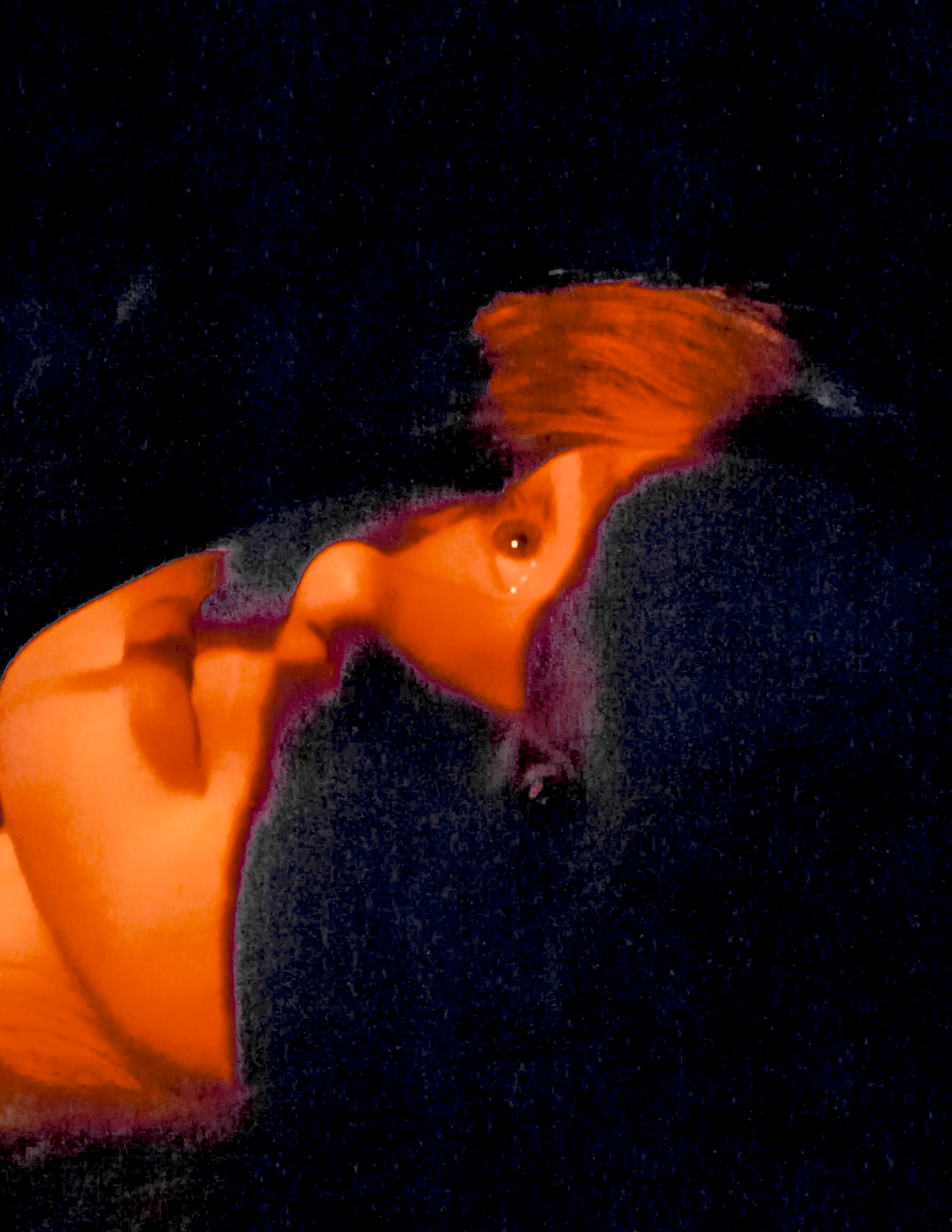
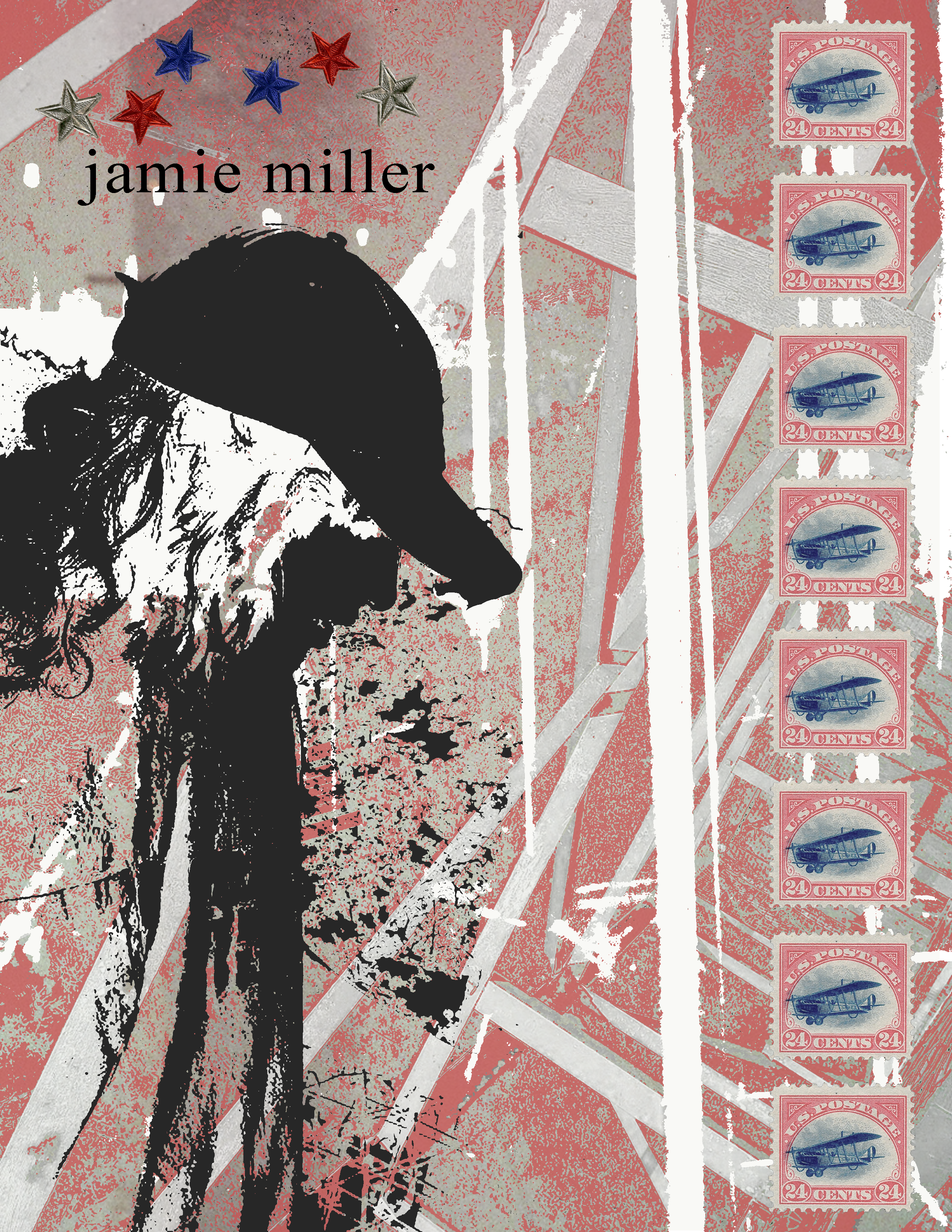
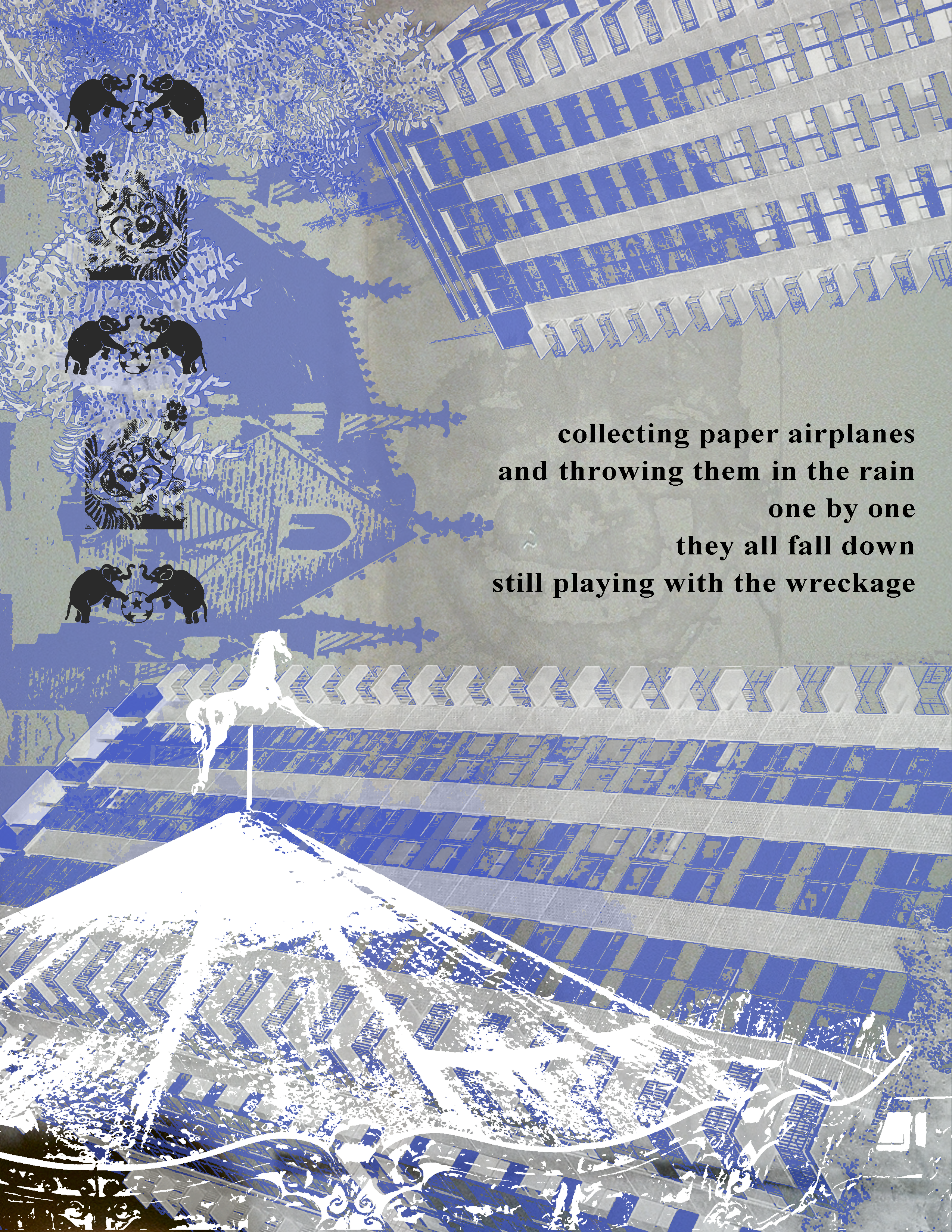
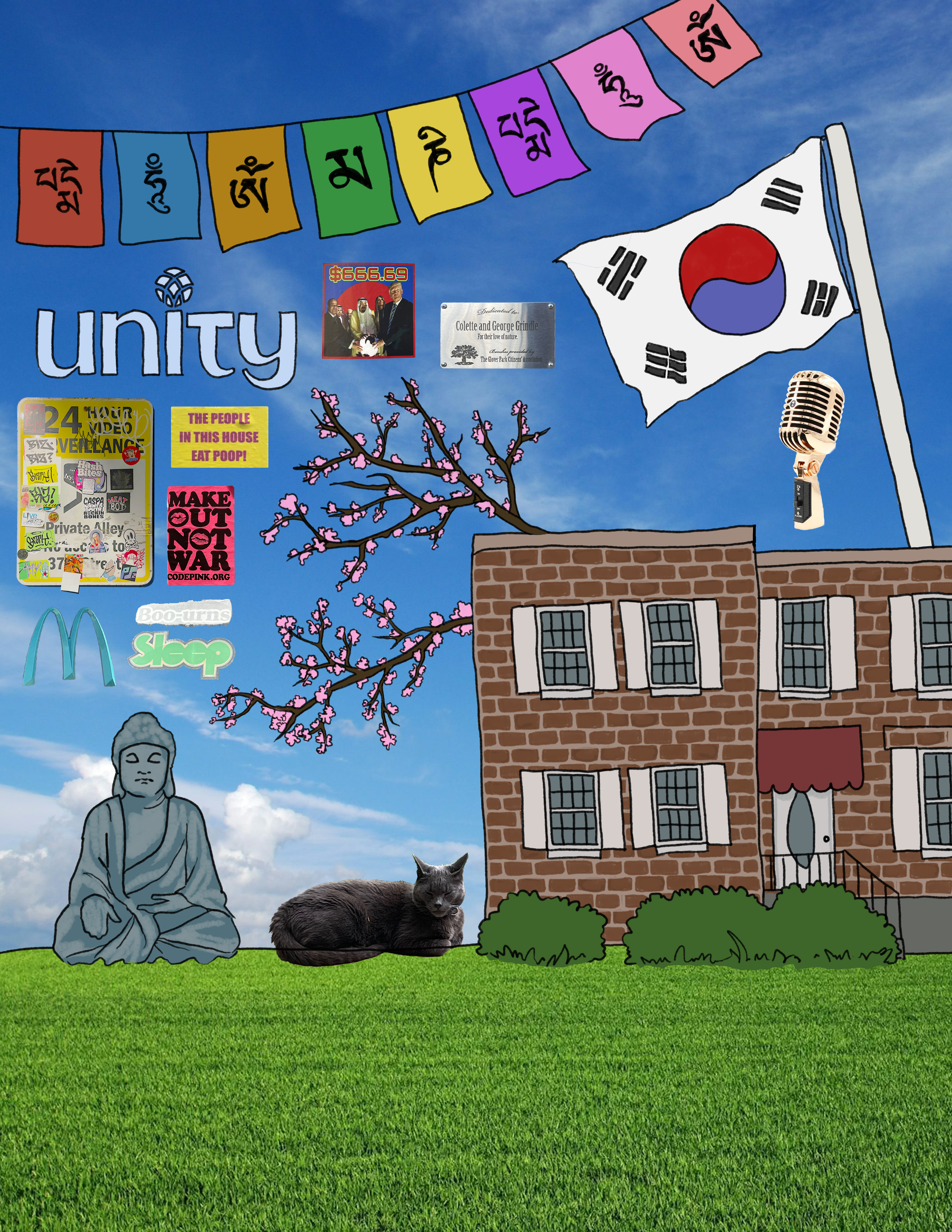

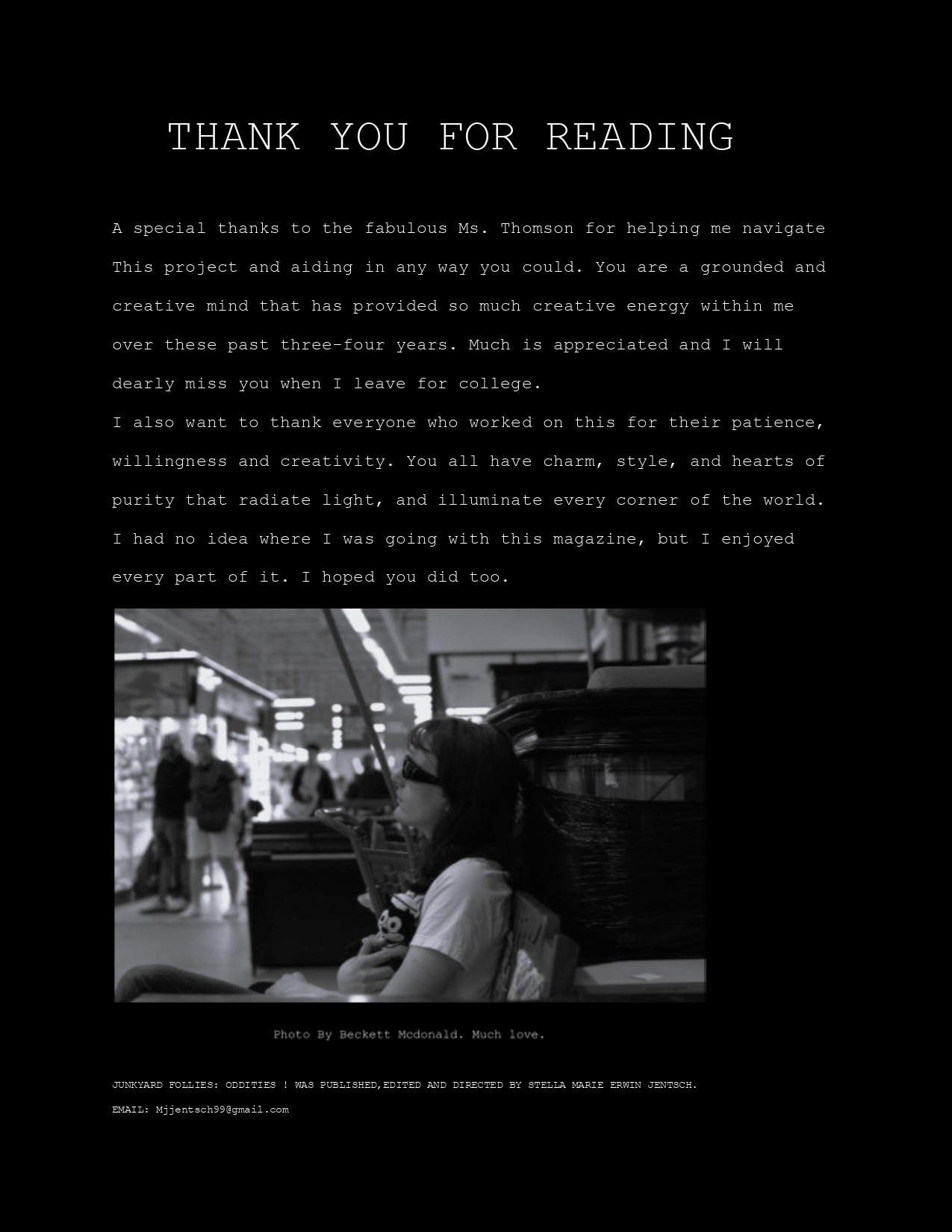
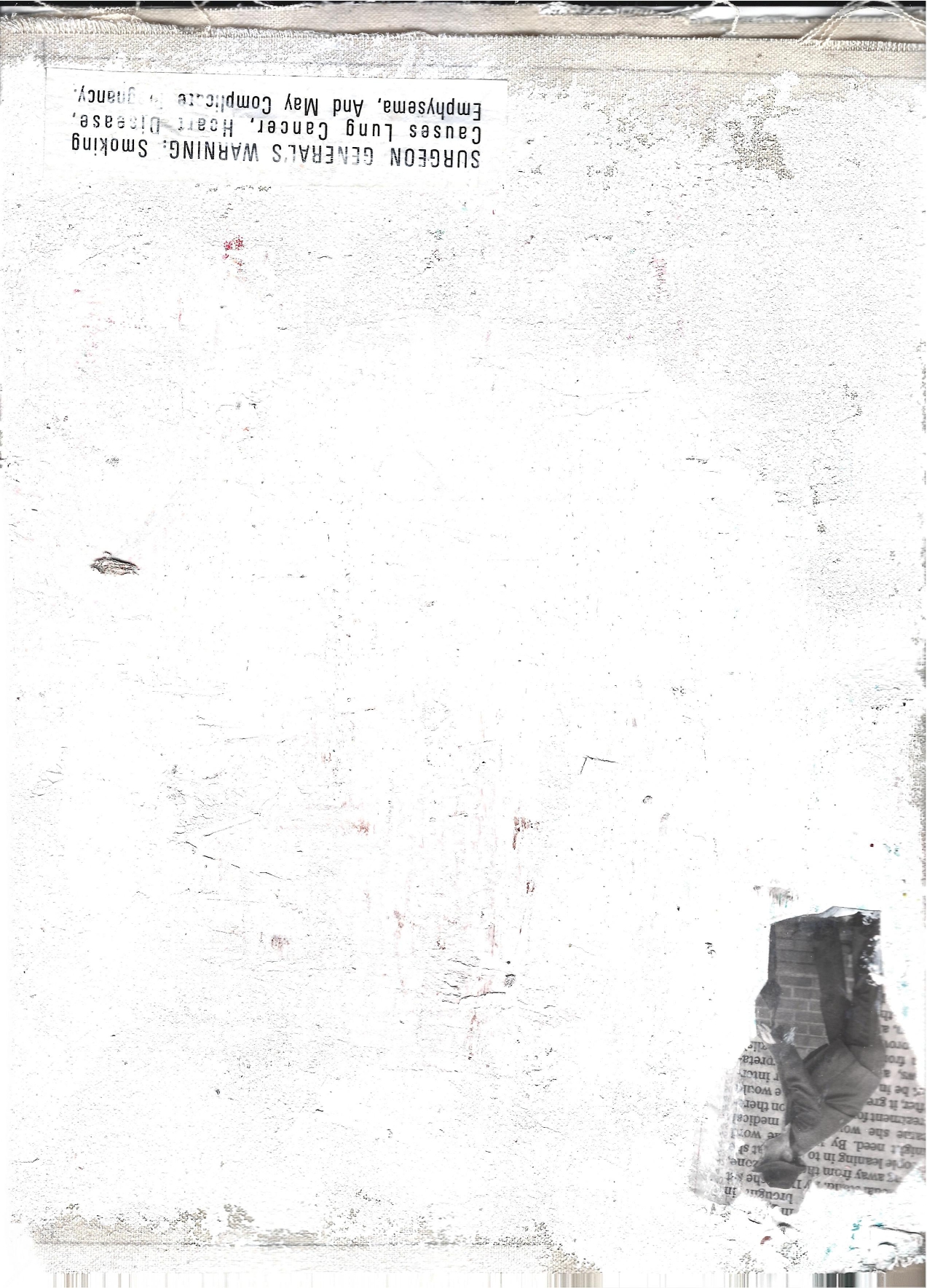
LINK TO MY INSTAGRAM HERE.
Scroll the whole page! poems and reviews are after the magazine :)
A magazine celebrating all that is off-beat and odd in the world


.jpg)

.jpg)






 (1) (1).png)









Attempting 7/12/25 -7/16/25 (A poem)
-Dreams in spangle ; woven to thy sleeve
-Ruins in monotone ; Spir’t stician to the breeze
-Briar slith'rs 'round the speckled rose
-Frustration Rejects Darma’s silv'r pro’s
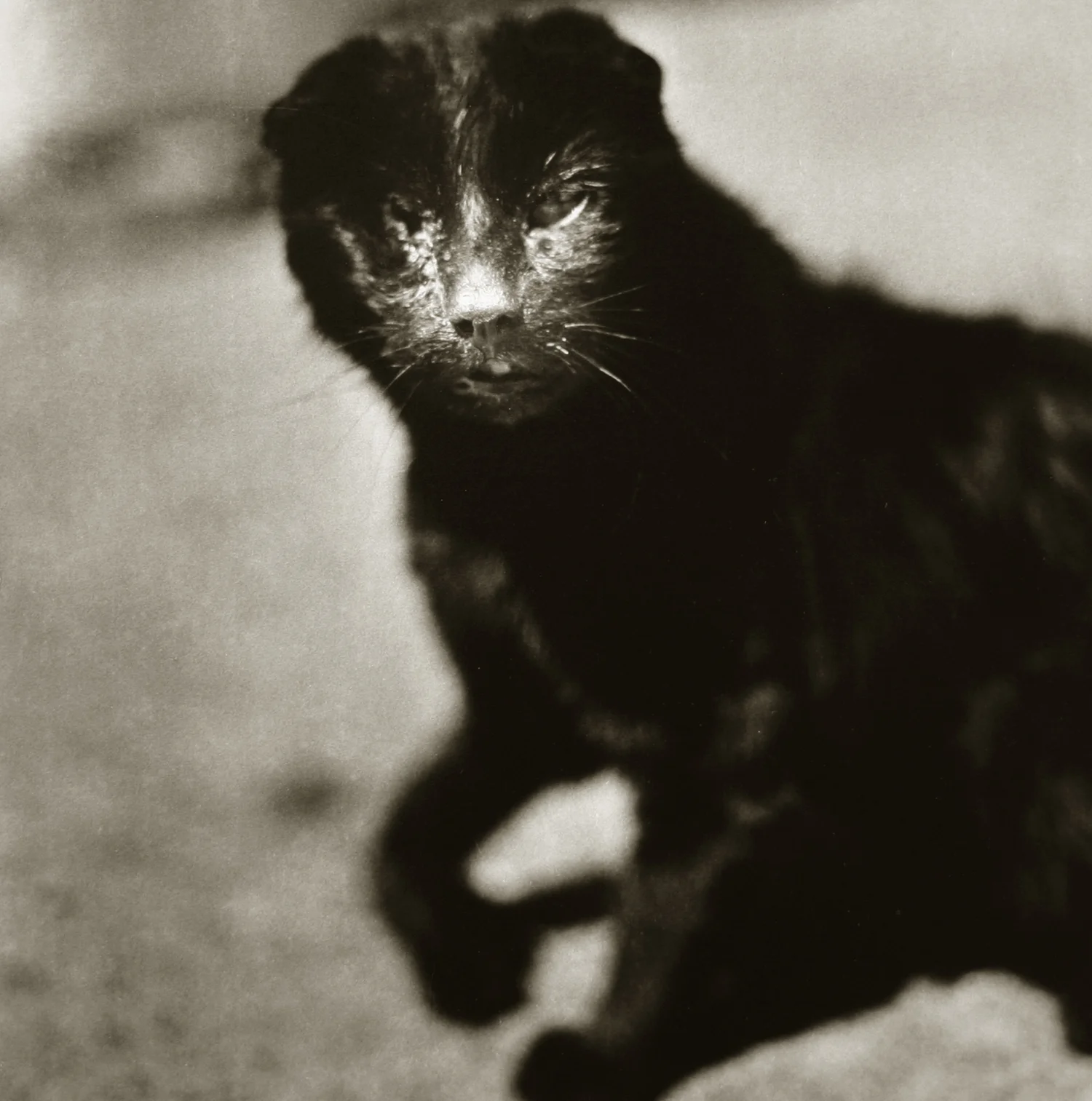
Photo by Matt Mahurin..
Alice 7/16/25 - 8/7/35 (A poem)
Oh’ alice when you fell down that hole
I never thought you'd end up like this
The epistles of wisdom gaze
At this finite bliss
A garden fountain with no end
A grinning two headed cat
Stifling flowers bloom
Under madnesses hat
A room with nothing but a boy playing possum
Every fear in your bone was confirmed true
The clocks hesitation was self centered
The tea steeped in all that was blue
Alice, you fell down the wrong hole
Ignoring the manuscripts of truth
Tear soaked linens
Empty bottles of vermouth
Toadstools of change grow from a dog's ear
Whimpering smoke grows in shame
The rabbit is running in circles
Looking for someone to blame
You were never on time
Showing up to the table with nothing in hand
Ignoring the courtesy of the hatters guild
Sitting on a crumpet with thoughts of another man
Oh alice You built a glass house
Just to paint to black
Walking in circles
Waiting for the years to turn back
Dream About A Doll (A poem)
He peers from behind the drab black satin curtain as if it were a door ; protection from the exposing wind of seasons pass’
A deer in the headlights ; caught between excitement and unease
Halfway in and halfway out, a slight bend of the knee and hunch of the back, standing as if he was hiding behind the back of his mother.
The moon was a color of a coffee stain, the night was hollow with the dew sprung pre-morn
Liver spots are scattered across his smooth head ; reflecting the rusted moonlight
A nose crooked and peevish, with a stifling expression held underneath his bolting blue eyes
Disgust, anguish and pleasure are all mixed together and sweat out of his wrinkled forehead, rolling past the lack of eyebrows and disappearing at the chapped and crinkled lips
His frail and fractious bones poke and jab from under the skin, A clanking body with a rushed mind
A perfect build for a lifetime of hiding in the corners and shadows that swallow his room
The belt he brands is rugged and leather, the shirt sprinkled with Perforations of the moth variety. The black slacks he brandishes end at the shin level. Rugged and caulesed his feet are, dashes of red dots atop the midfoot
The wooden doll clattered as the mouth shifted. Little murmurs under the man's breath in a high pitched voice ; attempting to garner my interest and get closer
I Held back solemnly in the doorway, despite his attempts to catch my interest ; such as moving the dolls hand in a brushing motion, gesturing safety but presenting madness
A small three piece suit was pasted onto the doll's rugged and splintery wooded exterior, maroon jacket, black pants and an olive vest
The grey cotton tailed painted onto the dolls rear was an attempt mock mirror of all that is soft and fuzzy
Doofy smiles and oversized feet were swung in an act of human enlivenment
His eyes were on a swivel, constantly switching between my reserved demeanor and the dolls excess
Stifling and sniffling across his words of encouragement he slowly retreated back into the thralls of the certain ; letting the doll speak on its lonesome.

Cathedral (1971) write-up
A Review by Beckett (@_becket_t_)
The 1970s were a notable turning point for queer cinema. In the wake of the Stonewall Riots, films like “The Rocky Horror Picture Show” and “Pink Flamingos” (which were once only shown at midnight screenings but are now regarded as seminal cult classic comedies) exposed audiences to unabashedly crude depictions of queer sex through lavish displays of camp.
Ronald Chase’s short film “Cathedral,” however, takes on a different approach. Instead of indulging in extravagance like many of its contemporaries, Cathedral tackles queer love through a more sensual and less explicit lens.
Across its roughly ten-minute-long runtime, Chase shows the viewer a series of intimate portraits and sharp close-ups of interlocking fingers and gentle kisses. The actors, engaging in an act of love that feels spiritual and yet is often considered blasphemy, are posed like martyrs in a display of their devotion in the face of persecution.
Initially, the low-key lighting, smooth dissolves, and shallow focus cinematography put me into a trance-like state, one enhanced by a quiet, droning score reminiscent of a church organ.
However, when the film escalates in its final moments, quickly cutting between images of stained glass and tangled bodies, I can’t help but feel that it almost completely abandons what made the film so compelling to me in the first place.In an attempt to offer the viewer a glimpse of sensational beauty, it sadly stumbles headfirst into schmaltz.
With that being said, I still found it to be a worthwhile watch. Although one could argue the film’s (comparatively) conservative attitude towards sexuality could be seen as an expression of Chase’s indignation towards what he might have perceived as “low art,” I still found myself deeply moved by Cathedral. Even with its kitschy religious allusions and overexcited conclusion, it remains a beautifully vulnerable depiction of queer sexuality that can (and should) exist alongside more provocative outings.
In fact, it is this kind of diversity in queer voices that is so pivotal to our survival. Especially under the current Trump administration (whose fascist policies have already affected the lives of countless queer people), it is imperative that we recognize our differences and celebrate them, not sew further division.
LINK TO FILM: HERE

Untitled Clippings From The Last American Vagabond - A screenplay
June 25'
PART. 1
-as dusk sets in, Audriene hops over a clanging fence into a lot between two industrial buildings. There are two pine-green plastic translucence chairs on top of cracked pavement with grass patches. The only other things there are a rusted barrel near the chairs and a loose copper wire coiled in a corner. The industrial buildings are brick and steel and old.-
-Audriene sits in one of the chairs chair, and starts lighting and cigarette-
-Focusing on Audriene smoking. (ALL IN ONE SHOT) Slowly in the background outside the fence we see a black mini-van car come to a stop. We see a blonde woman slowly roll down her window to peek out. She takes a good look. She closes the window and drives away. We hear the car make a U-turn. We see the car going the other direction. It drives off screen. We hear the car park, close the door and lock. We hear footsteps. Enter from left behind the fence ; Un-focased; We see a blonde woman in a blue polo shirt (made of an athletic material and white highlights) and nametag reading kim, and black slacks-
-Kim has bleach blonde hair, a babyface and green eyes. She has light makeup on, with some of it fading. Her shoes are bulky and black.
KIM: - AUDRIENE!? (she yells in place)
-Audriene looks over and we focus on Kim. Audriene makes a disgruntled “huh” sound.
KIM: - Audriene Lancester??.. ....I figured you’d be here.
AUDRIENE: - Kim? Kim h-how’d you know I'm in town?
KIM: - I saw you roaming around earlier
-Audriene gets up and walks toward the fence-
AUDRIENE: - Where'd ya see me?
Kim points to nametag- (CLOSEUP)
KIM: - I work at Snyders and saw you walking across the street through the window
AUDRIENE: - oh… that's swell. Here come over, let's have a little chat, if you don't mind getting your pants a little dirty…
KIM: - Oh it's no issue at all, I’m really just so happy to see you here…
AUDRIENE: - well me too kim, let me just help you over this fence before any pleasantries
-AUDRIENE helps kim over the fence-
-They both start walking over to the chairs, Kim adjusts and dusts her pants.-
KIM: - these are my work pants *Nervous chuckle*
-Both sit down. Audriene is sitting on the end of her chair with her legs crossed. Kim is sitting formally-
AUDRIENE: - Do you still smoke ?
KIM: - Occasionaly. (smiles)
AUDRIENE: - ill take that as a yes (smiles)
-Passes ciggy, kim takes a breath and falls back into her chair. Audriene grabs and lights another-
KIM: - Well Audriene,.... What have you been up to in the last five years? *smiling*(playfully)
AUDRIENE: - Well Kim, ima still traveling, still seeing the world. I’ve ventured into Mexico and Canada since the last time I saw you. I've also been just meeting people, making bonds and having fun I guess…..*smiles*
KIM: -that is so sweet. You really charm my heart……… Have you gotten to your goal of all fifty states yet?
AUDRIENE: - Not quite, I was much younger than and naive. I used to travel with a plan but lately I’ve just been going where the wind takes me. It felt like I was trying to justify this whole hopping thing to other people, instead of just being honest with them and myself.
KIM: - I get that. *Takes a hit* has everything been okay safety wise?
AUDRIENE: - I mean you get your occasional run-ins with the law and aggressive tweakers...... nothing too serious.
KIM: - Thats good
AUDRIENE: - That stuff is really scary at first but after a while it just becomes a part of the game. Just sometimes it's better to stick to yourself. You just gotta not let it be an option in your mind.
KIM: - I get it.
-Both Inhale and exhale at the same time-
AUDRIENE: -what have you been up to? Did you finally move out?
KIM: Oh yeah pfft a while ago. I've been working at snyders since then but I’ve got my own place now and a fiancee
AUDRIENE: - *smiling* No shit whats his name
KIM: - Logan. He works in accounting.
AUDRIENE: - Well wow. Ol’ miss schaffer got a man and a place. Who would have seen the day? Do you like things here in Breckenridge?
KIM: - It ain't no california, but Im doing quite well myself, I could live anywhere and still be content.
AUDRIENE:- That's lovely, I'm happy for you.........You deserve all that's coming to you.
-Both Inhale and exhale -
AUDREIENE: - Anyone else from high school still kickin' around town?
KIM: - well uh Alex is still around, works in sales at a ford dealership right outside town. Have not talked to him in a while. He was thinking about opening his own bar, but I uh,.....I don't really know what he is up to. All I know is that the bar has not happened yet….
AUDREINE: - What about Eric?
KIM: - He went to college for a bit but dropped out, now he's the in-house DJ at some gay bar in Denver.
AUDREINE: - Oh, Good for him. Never would of seen that coming…….*both grin laugh internally*
-Both inhale and exhale-
AUDREINE: - What about Maggie? What has she been doing?
KIM: - Well…..I don't know if you know or not but unfortunately she passed
AUDREINE- Oh……no I did not.........Im sorry about that…………..
-AUDREINE shifts in her chair-
KIM: - It was only a year after you left. She died of carbon monoxide poisoning.... Well, A leak happened when all her roommates were out on the town one night.... Maggie was staying' home to catch some rest for an interview the next morning....She never heard the beeping of the detector.....
AUDREINE: -That’s really horrible. I'm so sorry…
KIM: - Thank you....... I miss Maggie…... .but it's been so long I'm used to having her gone by now…. I still have the necklace she got me in junior year.
-KIM pulls out this silver necklace with a light pink heart at the end of it out of her shirt.-
KIM: - I still wear it
AUDREINE: That is very sweet of you…… I sadly can't remember the last time I saw Maggie… I really wish I Could recall.
KIM: - Yeah….
-Both inhale and exhale-
KIM: - Do you remember Mr. Walters? Our 10th grade anatomy teacher?
AUDREINE: - Yeah what about him?
KIM: -So apparently after the Arab spring he moved to Tunisia to perform plastic surgery on women with a fake doctorate and licence an-
AUDREINE: - Your Fucking with me aren't you....there is no way *smiling*
KIM: - I Swear I'm Not......….it eventually caught up to him so he fled back to america….…it was on the news and everything
AUDREINE: - Well, Shit.
KIM: - If you search Ray Walters Online its one of the first things
AUDREINE: - That is insane
KIM: - I know right……………………..OH… and do you remember Jamie from high school?
AUDREINE: Yeah? what about them?
KIM: - they got locked up by a crooked judge for some BS drug charges…..was in jail for 4 months before the court overturned it. They reimbursed them for a certain amount that was never disclosed…..all I know is that they split for California as soon as they got that money, so im not suggesting its a lot ... ..but im saying its at least enough to live in fucking Anaheim
AUDREINE: - Anaheim is a fake city.....its all cardboard fronts like a old movie set......no one actually lives there...
KIM: - Enough people to warent a baseball team I guess...
AUDREINE: - OH,do you remember jamies buddhist phase? And how whenever they got mad they would say "Im more like sidhartha than you'll ever be!"? *smiling and brakes laughing*
KIM: - Yeah ha I remember that..……it lasted around two weeks……..I think they got distracted by something else and put the sidhartha shtick dowm
-Both Inhale-
KIM: - I wish I had the balls you had. Whenever something goes wrong there is always a flash-in-the-pan impulse to just run away. Some say what you run from comes back. But I'm not a believer in that.
AUDREINE: - (solemnly) Yeah.
-Both inhale-
AUDREINE: - Welp. *puts out cigarettes* I better get going before it gets dark.
KIM: - Yeah totally! I have to start dinner soon anyways.
-Kim puts out ciggy and both stand up and get ready to go-
KIM: - Where are you headed? I could possibly give you a ride
AUDREINE: Thank you, that'd be lovely. I'm going to...
-HARD CUT to a chain shot of suburban porch and front exterior. Green door and says the name 1609 in white on the door. Windows covered by curtains.
-Cut to Audreine getting out of Kim's minivan in front of the house-
AUDREINE: - Thank you kim, I really appreciate your kindness.
KIM: -It's no issue at all! Anything for an old friend *smiling*
AUDREINE: Bye! *smiles and waves*
KIM: - Bye-bye!
-AUDREINE turns around and takes a couple steps. KIM rolls up the windows-
-KIM: - HEY! IF YOU EVER NEED ANYTHING OR NEED TO SEE ME I LIVE IN THE APARTMENT COMPLEX ON THE CORNER OF MELROSE AND WAYNE. APARTMENT NO. 12
AUDREINE: - SOUNDS GOOD * thumbs up*
KIM: BYE!
-KIM drives away-
-END OF PART. 1

Circus Boy May - June '25 - A poem
-today I saw the circus in west Lubbock texas U.S.A
-Me and tommy wer Shooting cans of Coka-Cola off each others head with the Crosman I got fer my birthday…………when I heard them marchin into town
-I Could hear em comin’ from a mile away by the beating pulse of the big kettle drum
-We bolted back home like hogs runnin from the slaughter
-I scoured through Ma and Pa’s coin purse to cough up the Funds
-The show started’ when this….big ol blue curtin dropped to the sound of a well-tuned band………banjo n all…….. Anyways it drops an this man with a satin shirt and top-hat was standing with a giant ring in one hand and a,.. And a.. Bugle in the other…..then BAM! out of nowhere a canon boomed….. An a flying midget in pink leotard flew thru the air like a grand ol’ bottle rocket…….. He went through the hoop and landed right into a bale of hay.. ..
-Linen’ the rows of the shaky stands were these black n white …polka-dot clowns doin anything for a laugh……they were slippin- all over the place…throwing daisies to th’ crowd…….pies a plenty flying…….card tricks to the shifting of the high hats……………. They are like roman gladiators in a coliseum of 15 cent hotdogs an-and….. Jubilation…….
-Sometimes I wish I could join the circus….. I don’t know what i’d do but I think they'll find a use for me…… I got this rash on my back that looks like Ike Eisenhower…. Ya think they'll let me in fer that??? {laughter}
-There was ... .uh ... .this lady in leather chaps and a leather bralette ... .musta cost her a cow!.........I dont get how girls go out like dat without their momma creating a ruckus…….then again I dont think in the circus you aint go no mama………………………………………. Anyway she wuz standing atop an apple crate blindfolded….. Her lips slightly agape…….they were cherry red………and behind her a big target…….her man the “great” Sharp-shooting raymond…… tossed knives at her in a perverse game of willem tell……..the crowd went silent..you would've thought you walked into a morgue if your were blind………….. Some folks here have never seen anything like it…… and boy some where angry after the show……sayin things like “I brought my kids here” and “dat missy gotta put on some gosh-darn REAl clothes”
-There was this man with a grand mustache and a whole set of muscles.. He could pull a whole traincar with his right hand…… if only I had a kamera to take a picture to show you……..all th’ kids back home think I'll be lying without it….
-…The dirtbike riders were’ tommy's favorite act…..when they came out the tent got so foggy…………..there was an haze in the air for the rest of the night……… Bout’ seven of them swerved in an out of each other like a mating ball of snakes….. Seven shirtless men making haste with the finest engines this side of the trinity…... .somes got no shirt on…..and like a pig - you could see the dirt coatin them overtime……. Some of em had gold teeth and others got sailor tattoos
-After the tattooed Men and Bearded girls…… this Es-kee-mo trotted out to the gold horns… a-an flopping alongside him on a purple leash wuz this blubbering’ grey seal……… The Es-kee-mo made it do all these tasks and tricks….. Some I aint never even thought it could do……… He could get the creature to stick its hand out like-like a business’ man and get it to bark whilst balancing atop a ball.,.... Boy those barks echoed through the tent…. The luminous spotlight made a shadow of the seal that spanned twenta’ feet…… it captured it flopping and rollin.….I was so close to it I could practically feel its hot breath……its teeth were’ Frightnin! truly …. Bein so close to them teeths gave me a rush
-Nowadays, some of these circus freaks are making it big…… I saw them Hilton Sisters on the silver screen at the 5 cent picture show ……. Down at generals theater on east and Mcarther …..the picture wasn't that good, but I kinda expected it from a 5-cent movie night…….
-Lady Godiva” trained the giraffes well…… got em´ to stomp to the beat of the drum, A-And uh lick peanuts outta´ the hands of little boys and girls………their necks wer’ reachin´ to th’ top of the tent….their head up in the clouds with the tightrope walkers and the callused hands of gods….
-I read in a book once that John Wilkes Booth grew up in the circus…. His father was an actor, but after he broke an arm fighting a rope dancer in Portugal, he immigrated here. The book also said his mother was an attraction….. Apparently, she had large breasts that were completely covered in tattoos……..said she went by Mademoiselle booth ………….. I don't believe that….. You can't believe everything that's in a book…..But I know for a fact that Wilks booth died on all Saints Day….. Ms. Thomson told me so´s.
-In the food tent, to the side by the urinal troughs an face painting booths, a room with black curtin had this martian noise coming out of it……we walked in to see a pin-stripepd man bowing, and bending a saw………… a new trick for an old pony………..
-Round 2 O´clock..……between shows…….we took a trip to the freak tents……………..this barker tol´ me there was this kid inside his with no face but only an eye……….he said he was from the deepest jungles of Siam…. I aint neva’ heard of Siam but it sounds like a mighty far away…..Probably some island jungle cuntry…. I pay my nickel and enter through th´ velvet curtains, and standing on a box in th´ center of th´ room was this cripple kid…..Had a face only a mother could love…….there were tears a´flowing from a pair of schoolgirls that entered with us and some clattering ruckus from these football players that were already inside………….. Some of them threw popcorn at him…..some threw pennies in hope he would tapdance like that minstrel boy in last years circus……….but he jus´ stood there…….barley moving ……barley breathing……..no mouth…..no nose…..no ears………jus an eye……….doing nothing…….on his shoulder there was this little black monkey with a little fez….. That made Tommy cackle……... .that dolt……. I wuz indifferent…….I had no feelings whatsoever……..it was like I had paid a nickel to divest myself of my instincts and thought/………All I did was jus’ stare back into his one milky eye and glance at his hazelnut colored skin branded with scars and rashes…… Tommy got bored and pulled me outta there by the collar..…………….but the rest of the day wasnt the same…
-When I looked back at the elephants …….. It just wasn't clicking with me like it did before………. peanut feeding didn't help……………………….. All I saw were beasts stacked upon each other in a cheap cage……..it looked like the bars were pennywhistles ..… like they could just burst at any moment………. the cotton candy was jus´ sugared spiderwebs…………the lions roar was jus´ a cats whine…………….and the trapeze artists were just some people on some swing someplace in some time…………….
--…….. Tommy told me to get over myself…. And that I would forget about it all once We walked into the next tent ………..we saw the contortionists thread together lik a spool of yarn…… yet as the tent awed, the image of the eyeball kids' missing toes would flash into my eyes………I thought, what limit does the body have? When does it all just fall apart?..... How many pins and skewers do you haf to put in yourself before you lose enough blood?….The flea circus was jus’a novelty, and the sword swallower just seemed like another idot….. I all got Mixed´ up and it scared me….. It reminded me of the feeling of falling over in the mudflats down south and gettin the mud in ma ears….
-When tha sun was waning and night was coming down…… me and tommy sulked outta there and found this dirt mound outside town to sit on…… sharing a Dr. Pepper……he tol´ me about his family and his crush on Lee Anne’.... But by that time I was checked out…… I could only think about that one clouded eye…… whenever I would close my eyes It felt like I was face to face with him in that tent….alone……………………..An all-pervasive and all-seeing eye that would not leave me be
-I'm glad I'm home now………. Some rest will probably help…. I hope you get this tape…. It cost two weeks' worth of collecting tin cans and glass bottles…... .send back a letter whenever you get this…….take care……………..love you ……………………………goodbye….
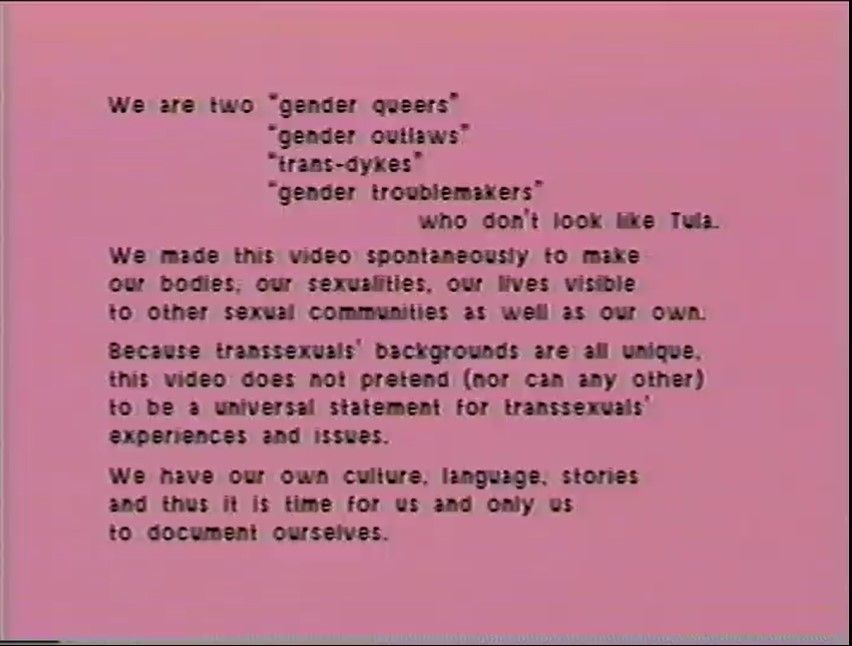
Gender Troublemakers,1993 - Directed by Mirha-Soleil Ross and Xanthra Phillippa
6/6/25
No spoilers
Canadian based performance artist and filmmaker Mirha-solel Ross teams up with her partner Xanthra Phillippa to create an 8 millimeter confessional of a short that explores the couple's relationship with the larger queer and gay community and their unabashed love for transsexual women.
The film takes a documentive role, with the two women taking turns with the camera, airing out their grievances with the larger gay communities' treatment of them post transition. I find many of their talking points still relevant and applicable to the current queer landscape nearly 30 years later.
The film is broken up into each woman's response to a question, these range from their treatment from gay men, their sex lives, and how they met each other. Between each question/take there is use of stop-motion photography showing the couples most intimate moments, in a respectful and endearing way.
This movie takes aim at the idea that the larger queer community is not free from internal hate and prejudice that comes from the ignoration of privilege, something that I find is hard for a lot of outsiders to grasp now, more or less thirty years ago. This attitude is something I find poignant and fresh especially after the constant scapegoating of trans people, by the general straight population and the queer people that join in or stand by and look away.
There is such power in seeing older footage of trans people and couples in general, and I find it even more moving to see them thriving. The grain and public access slides add to the charm and personality that helps personify those who make it. This feels like a moment that was needed to be made, something so personal that deflects criticism in its boldness and purity.
A radiance bounces off this film, a sheen of ecstasy comes from the pure excitement you see the women share when talking about each other, they become so relatable and likable that it feels like watching old family movies at a point. This ecstasy does not come blind tho ; a communal sense of understanding about how they are looking upon is seen, but only to be countered by their pure and unwavering bond for each other.
A smile brandished my face by the end of this, a glittery and serrated attitude that the film takes speaks right to my heart. To see two truly in love is a rare occurrence, even rarer to see who love like me is a rare occurrence, and I appreciated every second of it, a truly sweet little flick that I find essential viewing for those interested in gender politics and the transgender cause.
I wanted to keep this short so as to let the two women speak for themselves, and in hopes you would want to watch it. Go on and explore Mihra’s filmography here
{DISCLAIMER - NUDITY}

Un chant d’amour (Song of Love), 1954 - Directed by Jean Genet
6/5/25
No spoilers
One of my main goals I seek to achieve with this month-long challenge is to highlight and expose the diversity that queer stories bring, proving that there is no such thing as one queer narrative ; and in turn - no such thing as one type of queer film. This also applies to the medium of film, showing how directors have used different genres, lengths, and cinematic techniques to create their own queer story that resonates with both queer and non-queer audiences alike.Although there is diversity for those who seek it, the mainstream movie industry has often shed light on easier to digest stories and/or sob stories that never humanize the people involved. One population that dominates the queer film index is that of the gay, cisgender, white man. I have no intentions to diminish this population and its stories, as they serve as some of my favorite films I might explore later (Mysterious skins, Buddies, My Own Private Idaho), But the privilege this population holds, has seeped into cinema. The two attractive MLM (man loving man) stories have always been easier to digest for the broader audience, and international market. As I plan to show the diversity of queer stories, themes, and artistry within film, I feel as if these types of MLM films will take a back seat, to other stories I quite frankly find more interesting .
So to kick off this challenge I will be covering a MLM short film, to get it out of the way so I can focus on what I find more interesting. No stone left unturned they say…..
Un chant d’amour.
Written and Directed by Author, Poet, vagabond, and playwright Jean Genet in his only Directing credit.
Loosely based on his own novel Our Lady Of the Flowers, The film gives the audience a glimpse into the relationship of two prisoners, separated by a thick concrete wall, full of longing and isolation, devising unusual ways to communicate and express love to one another.
I have been aware of Genet as an artist for a while now, but it wasn't until early this year I decided to read any of his work. I received Our Lady Of the Flowers from a close friend as a christmas gift and have fond memories of reading it on the train to and fro from new york city in march.
Whilst reading I found myself returning to the idea if the book had the possibility of being adapted into a feature length film. I found it quite unimaginable to capture the essence and/or the spirit of the book in a coherent feature length film. I still believe that attempting a 90+ minute film would be a challenge, and if ever conceived, has a small percentage of being enjoyable and respectful to the original novel.
I was aware that John Water found a lot of inspiration within the novel, and pulled from it whilst working on films such as Mondo Trasho, and Female Trouble, with Actor/Drag artist Divine’s namesake being taken from the character from Genet’s novel, but truly no one has even tried to attempt to capture Genet's experimental narrative structures, the fluid language combining the argot of “lowlifes” and the poetic language of 16th century poets, and the theatrical techniques that makes the book so grand and powerful.
This short film has convinced me that the only person that can tell this story is Genet himself. Although not an adaptation, this short film is the closest thing, featuring a lot of hallmarks and themes of his work. He transfers his fluid and poetic rhythm into the filmmaking, with quick cuts and expressionist framing.
An erotic whirlwind of sight, black and white film captures the intimacy of these prisoners, and Genet packs in a lot of creative ways and ideas of showing expression, such as the prisoners sharing a cigarette by blowing smoke through straw in a small hole in the wall, and them communicating by tossing notes on daisy chain of flowers through the outer windows. During a dream sequence we can see statue-esc nude stills of the two, holding each other in unconventional fashions, something that looks like a cross between Mapplethorpe and Riefenstahl.
The film also highlights the unfortunate life of being gay within the prison system during the time, and creates a holistic view of the time and culture, without seeming exploitative and/or crass. Much like the majority of Genet's work, the film pries the eyes to beauty in a places that there are thought to be none, showing perseverance and poetic nature in places deemed filthy and unredeemable. (without ever crossing into exploitative or unhealthy)
A film that truly celebrates the meditations one practices in times of struggle, holding space and judgement, and saluting those who find love and happiness on their own terms. Despite being exemplary to the extreme side of love, there is a universal and primal sense of desire ; personifying upon the need to experience another person in an astutely timeless fashion. An intense 25 minutes for those who seek it, delightfully beautiful, delightfully sexual, delightfully sincere, and delightfully french.
[ VIEWER WARNING : MALE NUDITY - SEXUAL ASSAULT]